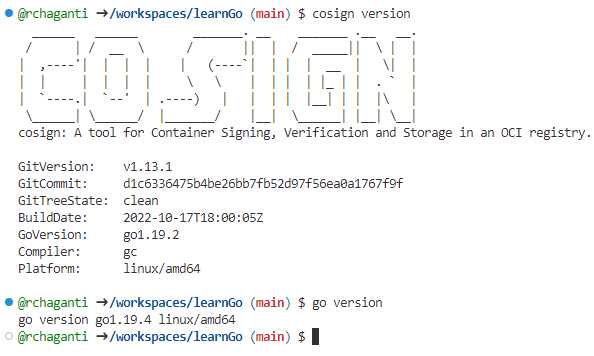Sigstore Cosign VS Code development container feature
For those following me here or social media will know that I am a big fan of Visual Studio development containers. I wrote a bit about Visual Studio Code development containers. I have been using devcontainers for different development environments extensively. I have a sample repo on GitHub that has all devcontainer definitions that I have been using for different projects. A latest addition to this list is the Sigstore cosign devcontainer feature.
If you are new to creating VS Code devcontainer features, you can read my earlier article where I walked through creating a devcontainer feature for Cuelang.
What is cosign?
The Sigstore’s cosign aims to support artifact signing and verification. This article is not about cosign but here is a quick look at what you can achieve.
|
|
Although the above example shows signing a container image, you can sign any artifact using cosign. I have a few articles around container images and OCI artifacts in drafts where I plan to show the usage of Cosign in-depth. For now, this is just a quick overview.
Coming back to VS Code devcontainers, I use devcontainers for all my development work and as a part of that I wanted to have cosign also available in my devcontainer. So, I created a feature that I can simply include in my devcontainer definition.
Consuming cosign devcontainer feature
All the devcontainer features that I build are available in the GitHub artifact registry.
For VS Code or GitHub codespaces to identify a devcontainer, you need to create a .devcontainer folder at the root of the repository. Once this folder is created, copy the JSON contents shown below to a file and save it as devcontainer.json under the .devcontainer folder.
|
|
This is it really. Whenever you open this repo in VS Code, it prompts you if you want to open the repository in a devcontainer. If you choose to open in a devcontainer, it will take a few minutes to build the container image and start the container for you.
If you need a specific version of the cosign binary, you can specify that using the version option.
|
|
In this devcontainer, I have both Go language and cosign binary. Simple. Eh!?
Let me know how you use cosign today in the comments.
Share on: